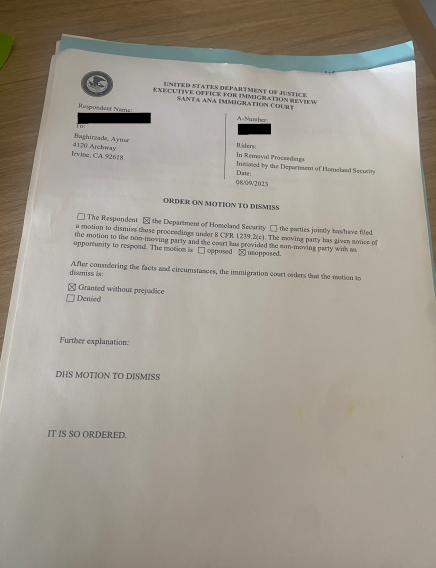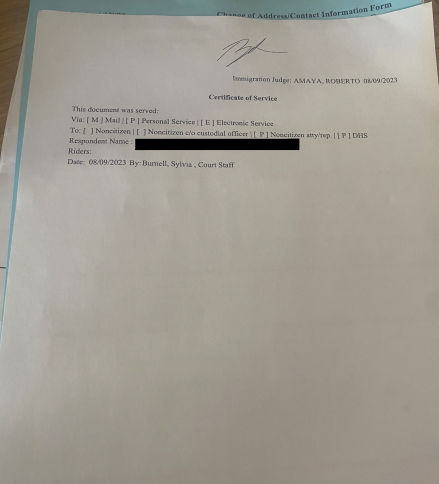With over 20 years of experience in Business and Commercial Law, I have advised global clients across sectors, from consulting for major firms like Booz Allen Hamilton to defending intellectual property for brands such as Procter & Gamble. My international legal practice includes extensive collaboration with organizations like the EBRD, EU, World Bank, and IFC, providing strategic legal insight in complex, high-stakes environments.
Introduction
This was one of the most complex and, at the same time, illustrative immigration cases in my practice. It involved a young woman who faced deportation (removal) from the United States after she was denied the removal of conditions on her residency (Form I-751). The denial was based on suspicions by the U.S. Citizenship and Immigration Services (USCIS) of a fraudulent marriage. However, behind this “suspicious” marriage was a real story of domestic violence, psychological trauma, and a woman’s attempt to start a new life.
Case Background
My client — a foreign national — married a U.S. citizen. As required by law, she received a conditional green card valid for 2 years. At the end of that period, she filed a joint Form I-751 to remove conditions on her permanent residency. However, due to tensions in the relationship and a divorce initiated by her husband, the form was not signed by both parties, and USCIS began reviewing the petition as potentially fraudulent.
The client was formally denied the removal of conditional status, and deportation proceedings were initiated (Notice to Appear in immigration court), as she had formally lost her lawful status in the United States.
Challenges
This case posed several challenges:
- USCIS suspected a marriage of convenience.
- The client did not have her husband’s signature on Form I-751, further complicating the case.
- USCIS had no evidence to prove the authenticity of the relationship or circumstances justifying the petition without the husband's participation.
The I-751 denial automatically triggered removal proceedings, so the issue was not just the green card denial, but forced return to the country of origin.
Defense Strategy
I decided to change the basis of the filed I-751 — from a joint petition to an individual waiver based on battery or extreme cruelty.
For that, I:
- Conducted a thorough interview with the client to document the chronology and details of the domestic abuse.
- Collected evidence of emotional and physical abuse, including:
- Police reports,
- Testimonies from neighbors,
- Medical certificates,
- Letters of support from a social worker and psychologist.
- Prepared and submitted a separate I-751 with a waiver without the husband’s involvement.
- Represented the client in immigration court (EOIR), including preparation for the hearing, building legal arguments, and defending her credibility.
Court Decision
After submitting the complete documentation and review of the case in court, the government representative (Department of Homeland Security) unexpectedly filed a motion to terminate the case. This indicated that the prosecution acknowledged the case had no merit and withdrew their claims.
As a result, the court granted the motion and terminated the deportation case. At the same time, the client retained her lawful permanent resident status without conditions. From a legal perspective — this was a complete victory.
Outcome
- The deportation case was closed pre-trial.
- The client remained in the U.S. lawfully.
- Documented confirmation of permanent resident status (green card) was obtained.
- No record of deportation appeared on the client’s immigration history.
- Her right to dignity and safety after experiencing abuse was protected.
This case once again demonstrated the importance of prompt legal support, especially in cases where immigration status is closely tied to personal trauma. In such situations, the client not only risks losing legal documents or residence rights — it’s a matter of protection from persecution, domestic violence, and re-traumatization.
Timely legal intervention can not only stop a deportation — it can change a person’s life.

































